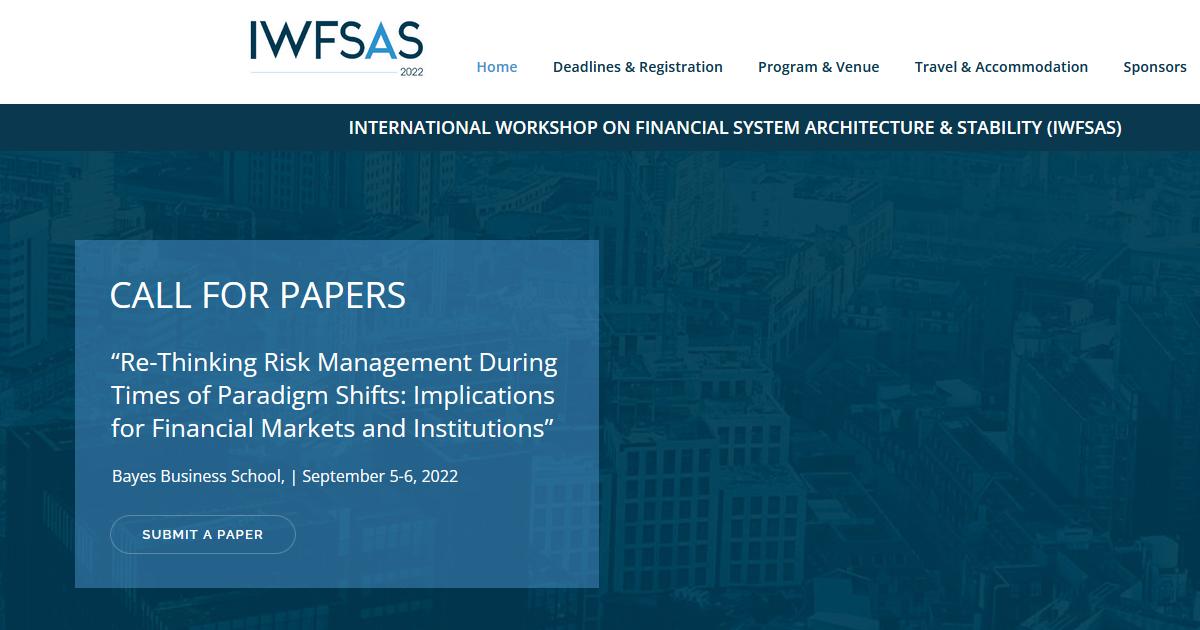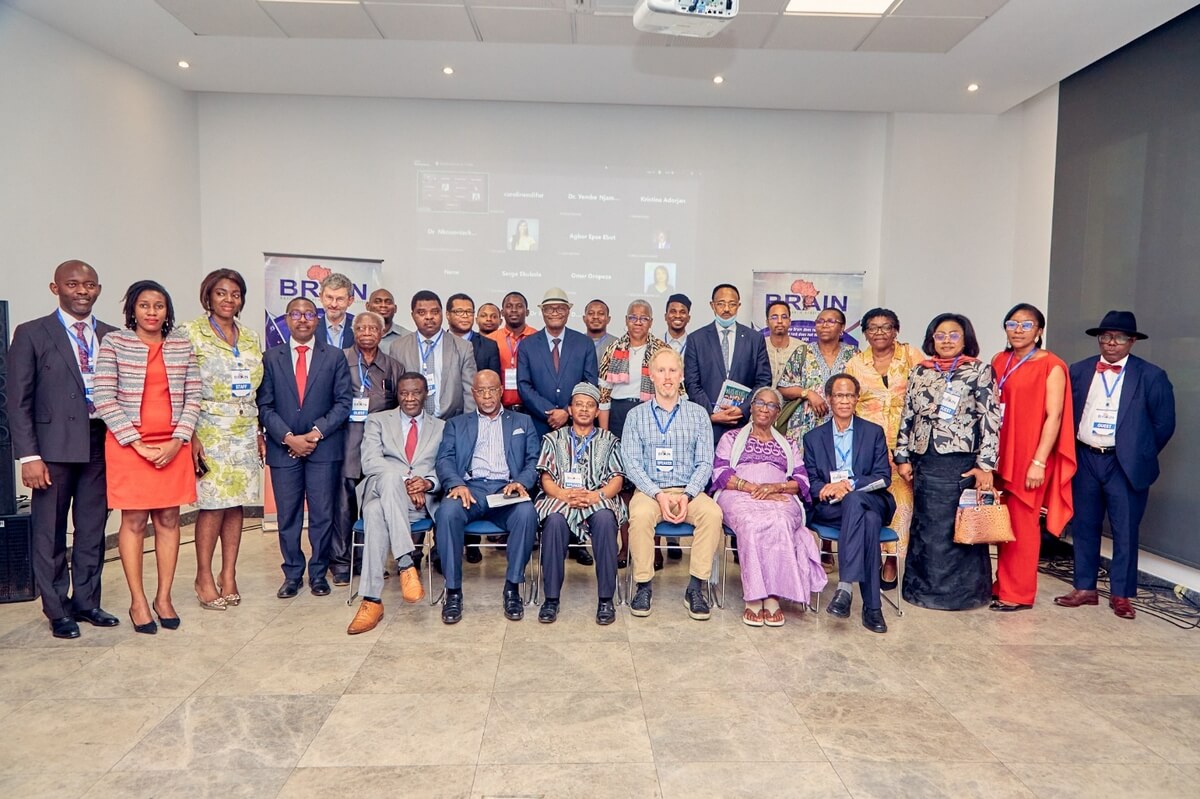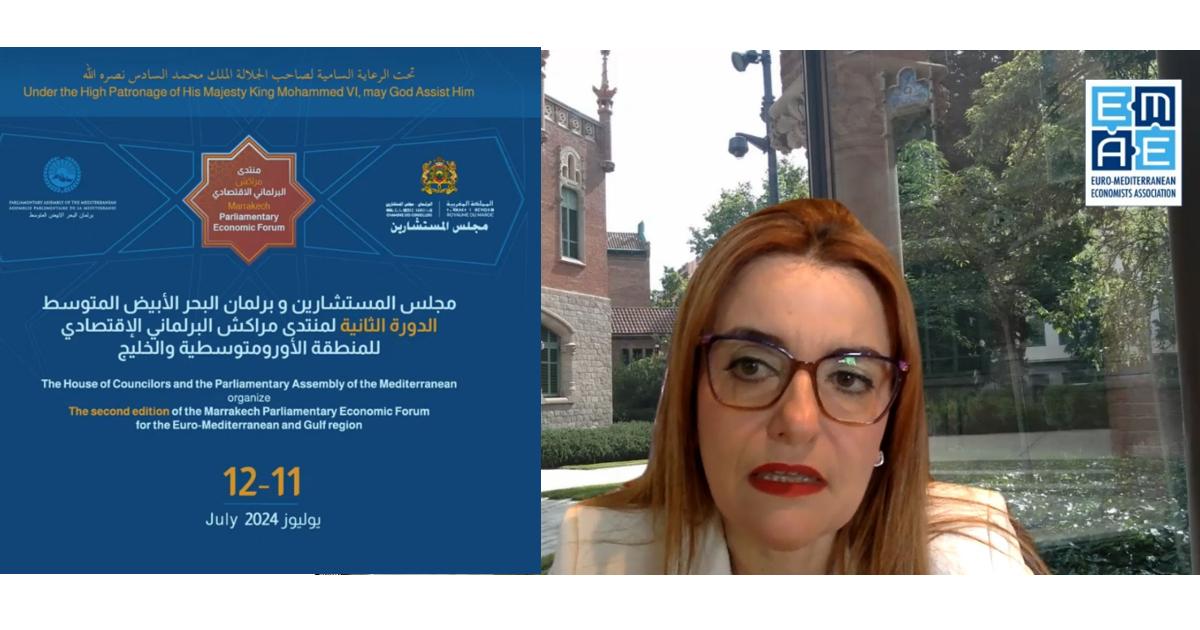The International Workshop on Financial System Architecture and Stability (IWFSAS) provides a forum for academic researchers, practitioners, and policy makers to discuss current issues related to the structure and design of financial systems and their impact on macro-financial stability and sustainable economic development.
This year’s IWFSAS meeting will be hosted by Bayes Business School (formerly Cass), in collaboration with the Euro-Mediterranean Economists Association (EMEA) and the Gustavson School of Business at the University of Victoria. It will take place at Bayes Business School, City, University of London, on 05 – 06 September 2022. The conference is scheduled to take place in person. Should restrictions regarding COVID-19 change and prevent large groups gathering, we will accommodate a hybrid conference, or a fully virtual one.
The Seventh IWFSAS conference offers leading academics, practitioners, and policymakers the opportunity to discuss innovative research on a range of topics related to novel risks for financial institutions and markets, from the increased geopolitical risks to the post- COVID-19 pandemic recovery and climate-related financial issues.
Keynote speaker of the event will be Prof. Marcin Kacperczyk, Professor of Finance, Imperial College London and CEPR.
As the world emerges from a global pandemic and steps into rising political tensions, risk management must address the shifting nature of business volatility. The changes likely to affect risks and their management in the coming years will arise from different contexts: demography and societal changes, the environment, technological innovation, and changes in socioeconomic structures including rising inequalities. These will reshape the conventional paradigms and create new ones, modify financial institutions vulnerability to risks, transform the channels through which risk spread, and alter government, investors, and corporate responses. For example, the COVID-19 pandemic has led governments to introduce unprecedented fiscal and monetary stimulus packages. While similar measures were used to fight past crises, such as the Global Financial Crisis of 2008/09, the scale of current interventions are unprecedented. The COVID-19 pandemic has also highlighted the interconnectivity of risks. Indeed, long-tail risks have become an important part of the risk landscape.
Governments responses to the climate crisis, for example the imposition of higher carbon taxes, or outright bans on certain industries such as coal, or simply increased regulatory pressures on high emissions industries, are necessary to tackle climate change but will also create a significant transition risk for companies and investors alike. Demographic changes and migration have macroeconomic and fiscal implications and will affect savings and the pension industry, leading to challenges to its sustainability. The emergence of new technologies and new players will lead to increased competition but also fuel a new generation of investments for households and businesses. Finally, increased geopolitical risks will disrupt supply chains and international trade, leading to new risks emerging in commodities markets, FX, and global payments. For example, the recent political crisis in Europe has already resulted in massive business disruptions with hundreds of companies and investors worldwide forced to take immediate action with respect to their operations in Russia, adding to other concerns about rising inflation, dealing with ongoing supply chains disruption, in addition to a refugee crisis.
This call for papers invites submissions of high-quality unpublished manuscripts on topics related to the impact of new risks on the financial sector, including, but not limited to:
• Climate risk and asset pricing
• Climate stress testing; Climate-related financial disclosures, reporting and other regulatory issues
• Central banks and the greening of the financial sector
• Post-pandemic recovery and green stimulus policies
• Geopolitical risks and impact on financial markets
• Monetary policy in the post-COVID recovery
• ESG risks and sovereign and corporate credit spreads
• Debt sustainability and international cooperation for debt relief
• Insurance, banking & pension funds exposure to novel risks
• Impact investing and other sustainable finance trends
• Nature-related financial risks and opportunities
• Corporate strategies towards transition and physical risks of climate change
• Corporate social responsibility in the post-pandemic world and rising political tensions
• Financial innovation and the U.N. Sustainable Development Goals (SDGs)
• Financial inclusion and technological change
• Gender, race and the role of financial institutions and markets
• Shareholder engagement vs divestment related to ESG issues
• Sustainability and stability of financial systems
• Emerging business models and asset classes
• Novel lending technologies and risk management
• Rising inequalities, supply chain disruptions and impact on financial sector
We welcome both theoretical and empirical contributions on the above topics, in addition to other more general topics that relate to the structure and stability of the financial system.
Important Dates
Please submit your full manuscript in PDF format by June 15, 2021, through the conference website (https://iwfsas.org/iwfsas2022/) or via email to: iwfsas2022@iwfsas.org
Deadline for Submission: June 15, 2022
Notification of Acceptance: July 22, 2022
Registration Deadline accepted authors: August 1, 2022
Conference dates: September 5-6, 2022
Link to IWFSAS 2022 Call for Papers pdf
Fore more information please visit: https://iwfsas.org/iwfsas2022/





